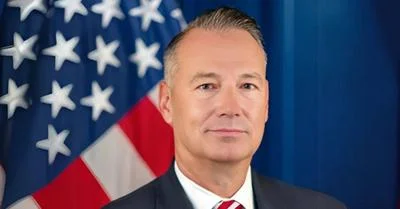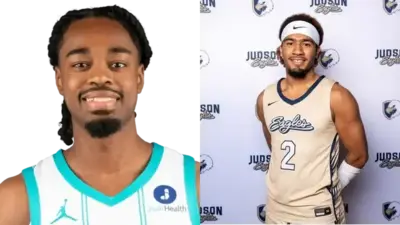Marshall Chin, MD, MPH, gained more than he expected when he enrolled in a local improv class. The general internist and health equity advocate at the University of Chicago Medicine not only learned storytelling and comedy techniques, he discovered an innovative way to teach medical students at the Pritzker School of Medicine about advancing health equity.
“As I got more involved in improv, I began to realize that the emotional intelligence and listening skills we were learning really translated well to the day job and could be a potentially very powerful way of teaching about equity,” said Chin, Richard Parrillo Family Distinguished Service Professor of Healthcare Ethics in the Department of Medicine. “Improv and other art forms are good at addressing many of the challenges that we talk to students about at the beginning of the term, like bridging differences in perspectives, creating a safe space and dealing with the grayness and uncertainty of medicine.”
While some medical schools have incorporated improv and other nontraditional methods to teach general listening and people skills, few, if any, have used them specifically to address health equity and issues like power, class and racism, Chin said.
Inspired, Chin gathered a 13-person team of physicians and scientists with skills in medical training, health equity, the arts and/or science communications, as well as entertainers and a program administrator to design and implement workshops. The group represented a diverse set of perspectives, experiences and cultural backgrounds.
The team developed four 90-minute virtual programs that used multiple forms of performance and art to encourage students to explore ways to advance health equity. The team launched a pilot program in 2020 as part of the Pritzker School of Medicine’s health equity requirement for first-year students. Learnings from the course were published as part of an invited commentary in Academic Medicine.
Sharing Experiences, Broadening Perspectives
During the workshops, students were broken into groups that used one of the following arts to explore inequities: improvisational or standup comedy; graphic medicine (comics and comic strips); and the Theatre of the Oppressed, a method that uses theater to promote social change.
Students using graphic medicine, for instance, were asked to draw a picture of themselves as a physician and to imagine what others thought and said about them. Students were invited to share and discuss their drawings to explore perceptions.
Teaching about equity through pure lecturing does not have the same impact that sharing and discussing a lived experience does.
Meanwhile, improv participants were required to watch and mimic the sounds and movements of others onscreen and then discuss the experience. The lesson is meant to reinforce the idea that “listening” includes paying close attention to body language and other nonverbal clues.
What makes these activities effective, Chin says, is the personal storytelling and discussions.
“Teaching about equity through pure lecturing does not have the same impact that sharing and discussing a lived experience does,” he said, referencing a key insight by team member/additional author Monica B. Vela, MD, now at the University of Illinois Chicago College of Medicine.
“Participants can see how two people can perceive the same event from very different perspectives," he said. "And engaging people in a dialogue about these differences, especially people they know, and coming up with an understanding, is incredibly powerful.”
Students seem to agree. The researchers surveyed participants after the class to assess its value. With a 61% response rate, 72% of respondents thought the workshops were very good or excellent, and 83% agreed or strongly agreed they would recommend the workshops to others.
The pilot program also has garnered national attention. Members of the research team have given presentations about it at a National Academies of Sciences, Engineering and Medicine event and a U.S. Department of Agriculture event.
Complex Challenges and Future Opportunities
Of course, there are challenges to developing an effective health equity course. Educators must create a space where students feel safe and encouraged to share their experiences and perspectives. They also must help students understand health inequities, be comfortable with the techniques and methods and contend with the challenge of teaching inequity at both the individual and systemic levels.
To address this, educators must meet students where they are and allow them to participate at a level where they’re comfortable, the researchers said.
“The real learning happens when the student next encounters a person who has had a different lived experience than they have had and they remember some of the discussions from class,” Vela said. “This continues to build with each encounter they have.”
The Pritzker curriculum provides a single required, standalone health equity course. Chin said a series of humanities courses or workshops that address specific aspects of health inequity — such as power differentials, social and racial privilege, and systemic factors — would be powerful educational tools for advancing health equity.
“I personally haven’t found a better way to teach somebody emotional intelligence skills than though the arts,” Chin said. “You learn those skills best by trying something, getting feedback and then getting better at it.”
Original source can be found here.





 Alerts Sign-up
Alerts Sign-up